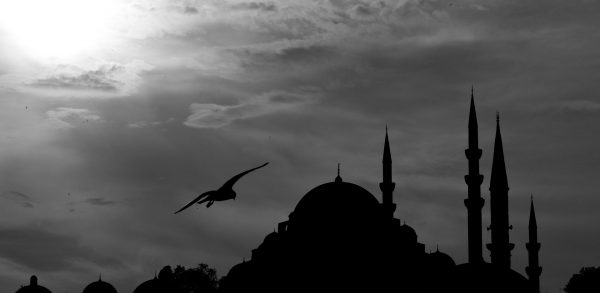The strength of OTGS lies in embracing the diversity of its employees
June 14, 2017
 Noman Mo works remotely for OTGS from Pakistan. He is part of the Toolset Support Team and works closely with 8 others each one coming from a different country – China, Indonesia, India, Egypt, Ireland Germany, USA and Jamaica! With such varied time zones coordinating their work is challenging to say the least.
Noman Mo works remotely for OTGS from Pakistan. He is part of the Toolset Support Team and works closely with 8 others each one coming from a different country – China, Indonesia, India, Egypt, Ireland Germany, USA and Jamaica! With such varied time zones coordinating their work is challenging to say the least.
So when at the start of the Ramzan month of fasting in Pakistan, Noman asked if he could work 10.30am to 2.30pm, take a couple of hours break and continue 4.30pm to 8.30pm, we asked him about this important festival in the Muslim calendar.
What is Ramzan?
Ramzan (Urdu) or Ramadan (Arabic) is a month long religious festival where Muslims refrain from eating and drinking from dawn to dusk. This year the festival began on May 26th and will end on June 24th, depending on the cycle of the moon. It is the most holy and spiritual month of the year. It is a time for intense prayer and adherents to the faith are encouraged to observe 5 prayers throughout the day. Thus, no eating, drinking, smoking or expressions of affection between married couples from sunrise to sunset.
In Pakistan, the month of Ramzan is celebrated with numerous prayers and rituals. In the late evening, the men visit the mosques and perform a special long prayer of 20 Rakaa known as Taraveeh, lasting for 1 ½ hours while women pray the same at home. Friends and family are often invited to share the fast together. Noman and his family share the early dawn and evening meals together.
The day begins at 3.30am, but this can vary according to the season and observance of the sun. Special foods are offered – deep fried dishes rich in oil and nutrients to energize people for the day-long fast. No other food is eaten until 7.00pm, and again this varies with the season and observance of the sun. When the sun sets in the evening, special refreshing drinks of rosewater and lemon are prepared.
In the summer heat (which can be as high as 48°C), energy is sapped and people try to find time to re-energize and rest while continuing their prayers. Often the Quran is recited just before the feasting begins after sunset. Many flock to the mosques to participate by eating the meal together.
Working during the Ramzan
Offices, banks and government departments usually open earlier than normal i.e. 8AM or 8:30 and close at 2:30 or 3PM. The bazaar open late, take a break during the evening prayers and re-open at 10.00pm. Restaurants, food stalls are closed and out of respect, people do not eat in public.
Benefits of Ramzan
Fasting is generally regarded as good for the body, society and for the faith, promoting brotherhood and unity. It is also a time to understand the feelings of needy ones and to help them by sharing food and other resources such as donating money to charities. It is a time to cut down on vices – gossiping, swearing and fighting. Fittingly, “Ramadan Kareem ” and “Ramadan Mubarak ” are the greetings used to offer wishes for Ramadan. (Kareem means generous and Mubarak means blessings).
We thank Noman for explaining Ramzan to us.
85 people working from 38 different countries, all different, encompassing varied local customs and traditions – could this be a cause for disunity or indecisiveness? To the contrary! It is truly a tribute to OTGS that by embracing the diversity of its employees, it has successfully forged a unifying bond.
Come Work With Us
Are you interested in working with a globally distributed team that encourages growth and advancement? Are you ready to harness the power of technology for a better future?
